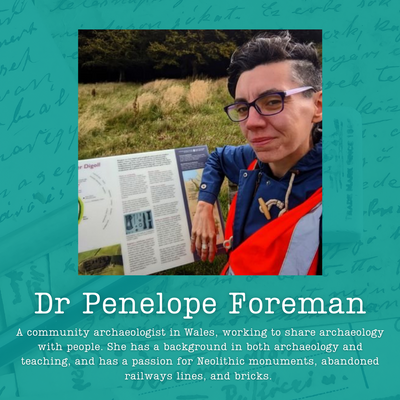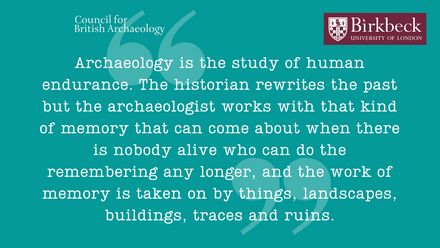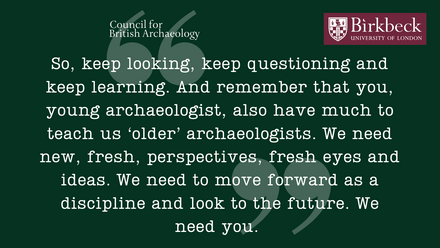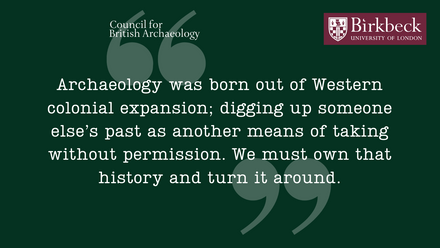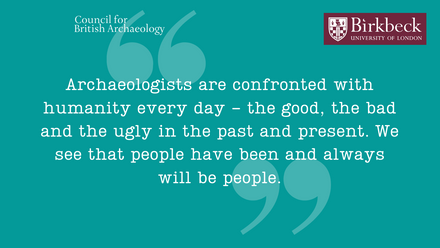Letter to a Young Archaeologist, May 2022

From Dr Penelope Foreman, Chief Memory Maker and Storyteller;
Dear young or young-at-heart archaeologist,
I am writing to you from the past. This letter is history. Like a shattered pot excavated from a trench, my words, pieced together, let you imagine my world. If I describe the weather out of the window - sunny, with a slight bite to the wind - you could guess the time of year. If I tell you about the steam rising from my cup, you could guess it was a warm drink, tea or coffee. If I describe the sound of keys clicking, you can imagine the type of device I am writing on. We don’t often get to interpret words as archaeologists - the finds, landscapes, and remains we explore are our clues; we weave stories with them.
I am a community archaeologist, but I prefer my full job title which is “Chief Memory Maker and Storyteller”. Because stories are what make archaeology so exciting, fascinating, so personal, so world-wide. The story of a sliver of fine Roman glassware that ended up in a villa in north Wales, what shape it used to be, what songs were sung at the table it sat on, what the drink inside it tasted like. The story of a lost coat button from what used to be a drovers’ road, trod flat by the tar-covered feet of a flock of geese as they are marched to distant markets. The story of an intricately decorated chalk cylinder, thousands of years old, buried with a child and challenging us to think about our notions of death, commemoration, celebration, art, and memory.
The best part is, all of these stories have a place in archaeology. And everyone interested in these stories, or creating their own stories, is an archaeologist. There are as many ways to be an archaeologist as there are stories to be told - and you can find your way to be a storyteller. Being a community archaeologist, it’s my job to pull apart the barriers between archaeology and communities - letting everyone hear stories and share their own. To open up the trench not just literally but metaphorically. I’ve explored lots of ways to do this - sometimes it means a visit to an active excavation, but that doesn’t work for everyone. Sometimes it is working with artists to explore a site or landscape with people so they can connect to it without words. Sometimes it is handing over the reins to young people and asking them to explore a past and heritage that matters to them, in a way they choose. Sometimes it is inviting clog dancers to sing workers’ songs in the weaving floor of a textile mill. Sometimes it is understanding that my experience and the experience of those I want to work with is so different that the best thing I can do is listen and learn.
There are many reasons that archaeology and heritage isn’t always accessible, and sometimes tackling those reasons can be challenging for all involved. As a subject, archaeology often developed from ideas and narratives that were developed and controlled by people from very homogenous backgrounds, so stories were limited by the experience and opinions of these people and people like them. The world is slowly changing - with a growing understanding that we need to hear from as many different voices as possible to really have the richness of stories about the past that we need to get to grips with the rich, vibrant, complex and sometimes confusing human past.
Archaeology has the incredible power to allow everyone to explore and share their ideas - because there are so many ways to imagine and interpret it - so I work on making sure people have access to that power.
Enjoy exploring that power, and never let anyone tell you that you can’t.
Pen Foreman
